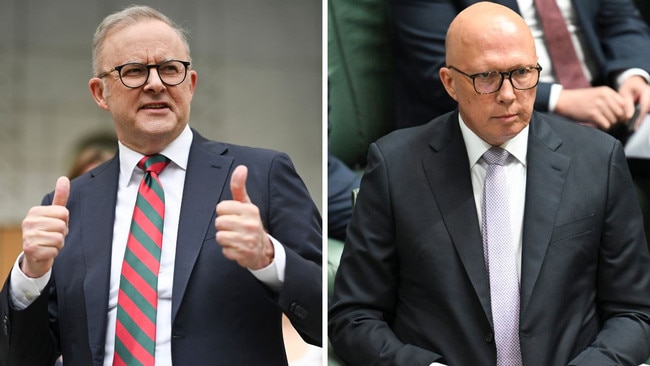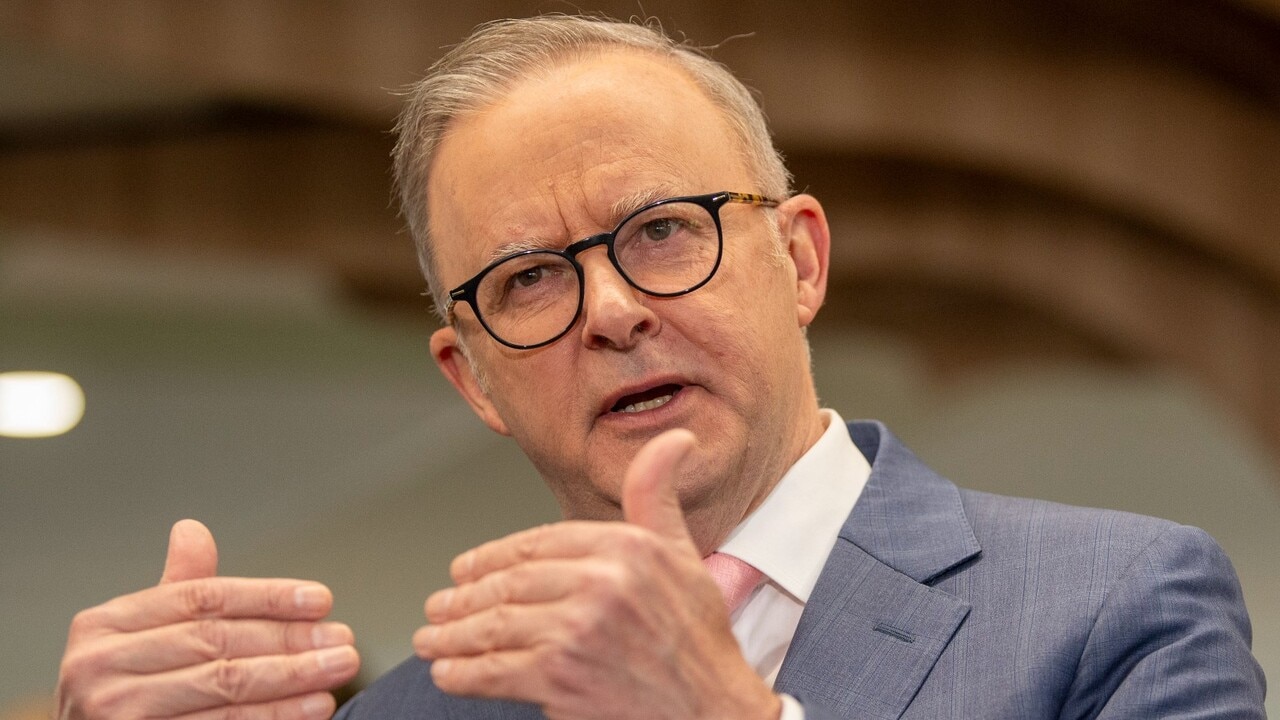
Both leaders want to be seen to be concentrating on what is the top issue for voters – the cost-of-living – and want to avoid political side issues and to debate the economy.
In the first parliamentary question time since the damaging allegations of the Prime Minister seeking free Qantas upgrades worth thousands of dollars and fallout on all politicians seen as having their snouts in the trough, there was not a single question on politicians’ flight upgrades.
The raw parliamentary politics were: One, a Coalition concession that the Qantas saga was hurting all sides and; two, a Labor declaration that it’s got nothing left for its first term of government.
Australia’s political leaders have embarked on an election campaign complete with a Labor launch in Adelaide on Sunday and a strategic and rhetorical pivot after the Labor and Greens’ loss in the Queensland state election.
There will be no “early” election this year and whether it is in March next year or May, when it must be held, Australia faces an unofficial campaign of four to six months.
In an extraordinary ceding of power to the Coalition, Greens and independents, the Prime Minister has begun the final 2024 parliamentary sitting weeks and dedicated the five scheduled sitting weeks next year talking about Labor’s “second-term agenda”.
It’s an admission that the first Albanese government has achieved all it can, has nothing more than politics to offer in parliament and will rest on its laurels.

It is also a strategy to lock in those ALP MPs who fear not enough has been done, to quell any destabilising leadership talk and exert the discipline of an election campaign in the face of poor polls and political miscalculation.
On Monday, once again, the Opposition Leader opted to let a damaging scandal – the Qantas quagmire – eat away at Albanese’s credibility and personal standing in the public space while switching to the economic “main game”.
Dutton has effectively used embarrassing issues for the government, such as immigration detention releases, tourist visas from Hamas-controlled Gaza, Albanese’s $4.3m “retirement” mansion, banning Qatar’s extra landing slots and, of course, the 20 Qantas upgrades for the PM, but needed to move into a new phase of real electoral contest. Instead of talking about figures of billions of dollars, deficits and surpluses, Dutton has made it clear he intends to concentrate on the kitchen economy – the “household recession” that people are experiencing as price pressures defy the fall in headline inflation.
Given Albanese’s stated intention to personally attack the “aggressive and arrogant” Dutton as part of Labor’s core re-election strategy, it is understandable that the Liberal leader wanted to ensure the PM’s credibility was as damaged as possible before embarking on the broader strategy.
For Albanese the immediate relief over Qantas upgrades is welcome but also of much less importance than his own election strategy of denigrating Dutton, promoting the fight against inflation, cost-of-living relief measures and rising real wages, and “opening the door of opportunity” for Labor’s second term.
But, when Greens leader Adam Bandt asked the best question of the day of why Labor was not introducing its promised $16bn cut in students’ debts this year instead of waiting until after the election, Albanese’s position of being caught between the Coalition and Greens and without an agenda for the next six months was exposed.
Qantas upgrades won’t go away – Leader of House Tony Burke – was cheered and jeered loudly when he was the only person to mention Qantas on Monday, but the game has shifted big time for a long time.




The Qantas freebie upgrade saga has been downgraded in favour of the economy as Anthony Albanese and Peter Dutton set out on the longest election campaign in Australia’s history.